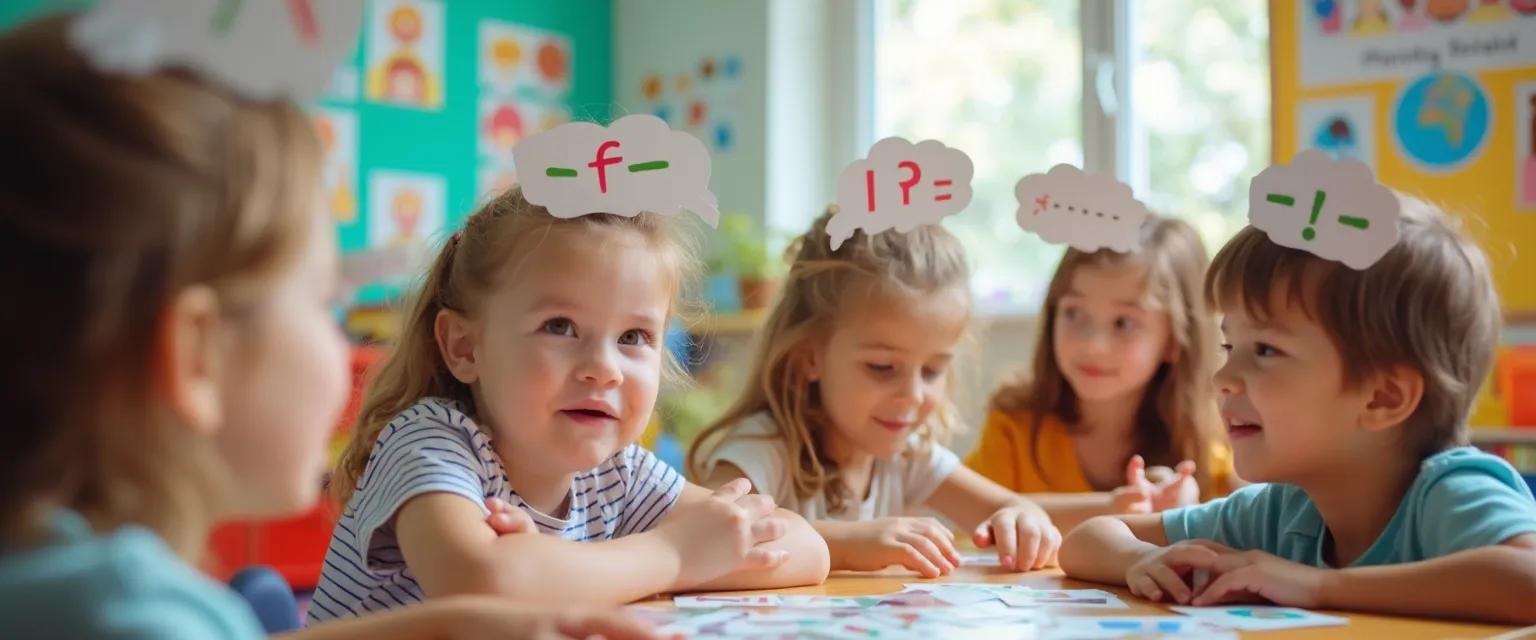5 Fun Games to Boost Self-Awareness for Elementary Students
Fostering self-awareness for elementary students creates a foundation for emotional intelligence that benefits children throughout their academic journey and beyond. When young learners understand their emotions, strengths, and challenges, they develop crucial skills for navigating social interactions and classroom learning. Incorporating playful activities makes this abstract concept tangible and engaging for elementary-aged children who learn best through interactive experiences.
Research shows that effective self-awareness for elementary students contributes to improved academic performance, better classroom behavior, and stronger peer relationships. These emotional intelligence techniques help children recognize when they're feeling frustrated, excited, or overwhelmed—allowing them to respond appropriately rather than react impulsively.
The following five games transform self-awareness practice into enjoyable classroom activities that elementary students eagerly anticipate. Each game targets different aspects of emotional intelligence while maintaining the playful spirit that makes learning stick for young minds.
Why Self-Awareness for Elementary Students Matters in the Classroom
Self-awareness for elementary students serves as the cornerstone of emotional intelligence, which directly impacts learning outcomes. When children recognize their emotional states, they're better equipped to manage distractions, regulate reactions, and maintain focus during lessons.
Educational psychologists have established clear connections between self-awareness and academic success. Students with strong emotional intelligence typically demonstrate improved reading comprehension, mathematical problem-solving, and creative thinking. These benefits make implementing self-awareness for elementary students a high-priority classroom initiative.
Beyond academics, emotional awareness creates a more harmonious classroom environment. When students understand their own feelings and recognize emotions in others, conflicts decrease and collaboration flourishes. This positive atmosphere benefits everyone's learning experience and prepares children for future social and professional interactions where emotional regulation skills are essential.
5 Engaging Games to Develop Self-Awareness for Elementary Students
Game 1: Emotion Charades
This twist on a classic game has students draw emotion cards and act them out while classmates guess the feeling. It's an entertaining way to expand emotional vocabulary and recognize physical manifestations of different feelings. For best self-awareness for elementary students practice, follow each round with a brief discussion about when students might experience these emotions in school.
Game 2: Strengths Spotlight
Students take turns sitting in the "spotlight" chair while classmates share positive observations about their strengths. This affirming activity builds self-awareness for elementary students by helping them recognize their unique talents and contributions to the classroom community. Teachers can record these observations on star-shaped paper for students to keep as reminders.
Game 3: Feelings Thermometer
Create a large classroom thermometer with emotions ranging from calm to extremely upset. Throughout the day, students move their personalized markers to indicate their current emotional temperature. This visual tool makes abstract feelings concrete and helps students track emotional patterns—a key self-awareness for elementary students strategy.
Game 4: Mirror Mirror
In this partner activity, students take turns being the "mirror" and reflecting their partner's facial expressions and body language. This game heightens awareness of nonverbal emotional cues and helps students connect physical sensations with emotional states—an essential component of self-awareness for elementary students.
Game 5: Growth Mindset Moves
Combine physical movement with emotional awareness by assigning specific motions to different mindset statements. When students hear "I can't do this," they might crouch down small; for "I can try different strategies," they reach up tall. This kinesthetic approach to growth mindset development embodies self-awareness principles in a physically engaging way.
Implementing Self-Awareness for Elementary Students Through Regular Practice
Consistency transforms these games from occasional activities into powerful tools for developing lasting self-awareness for elementary students. Integrate these exercises into daily routines, such as morning meetings or transition times, to reinforce emotional intelligence concepts throughout the school day.
Adapt each game to suit different grade levels by simplifying language for younger students or adding complexity for older elementary learners. For example, first graders might work with basic emotions, while fourth graders explore more nuanced feelings like disappointment or anticipation.
Measure progress in self-awareness for elementary students by noting changes in classroom behavior, conflict resolution skills, and students' ability to articulate their emotional experiences. The most effective self-awareness for elementary students programs combine fun activities with practical application throughout the school day, creating an emotionally intelligent classroom where students thrive academically and socially.




